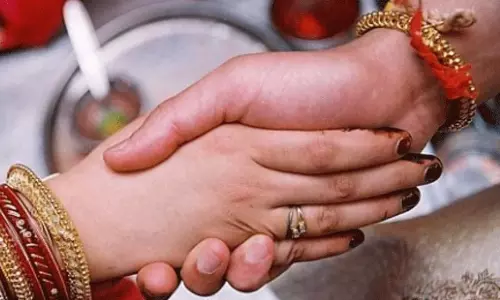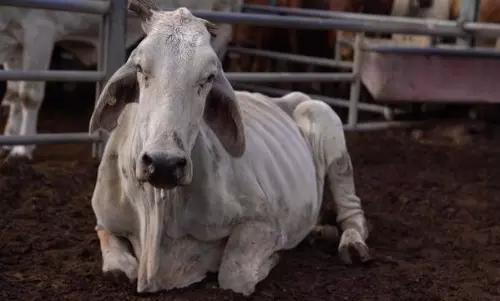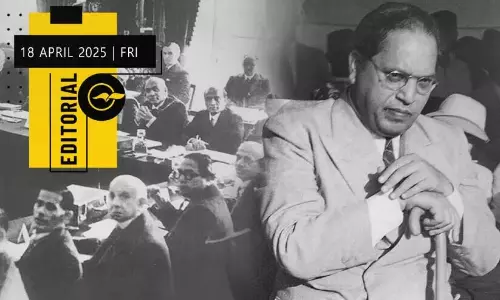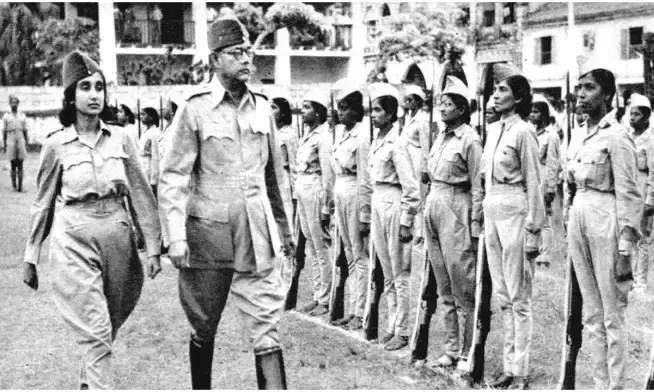

'People's banks' and corporates: The great conspiracy
text_fieldsOn November 30, the Indian Parliament passed the Farm Laws Repeal Act, 2021. On December 9, the Union government sent an official letter to the Samyukt Kisan Morcha accepting all of the farmers' outstanding demands– except for the guarantee of Minimum Support Price as a legal right. The farmers have dismantled their tents, cleaned the streets that had been the venue of their year-long protest at the Delhi border, and have returned to their villages after celebrating 'Vijay Diwas'.
From the government's side, all didn't go according to the script. The farmer's protest, for the first time in seven and a half years of Modi rule, stirred some slight hope in the people about the democratic outcome of uncompromising protests put up against even the most ruthless government. The government had to cede to the non-violent tenacity of the farmers who had turned out in their thousands -- especially in the run-up to a very defining plebiscite in the largest state of India, Uttar Pradesh, early next year - and subsequently also in the states of Uttarakhand, Himachal Pradesh, Punjab and Goa. The year-long state repression of the struggle and the timing of the Prime Minister's apology has only further deepened distrust in the government.
Be that as it may! The farmers (and the nation) sure need a willing suspension of disbelief at least till they reach their village gates – an elaborate sticky cobweb of corporate farm lending awaits them in their rural landscape.
On December 2, 2021, the State Bank of India (SBI), the largest public sector bank in the country, announced a tie-up with the highly indebted non-banking finance company (NBFC) Adani Capital. It is to be noted that Adani Capital, now declared the co-lender of SBI's farmer loans, was established only as recently as in 2017; has only 63 branches country-wide, and already has an outstanding loan of Rs 1292 crores.
Upon return to their villages, the farmers will be encouraged to take SBI loans to purchase tractors and farm implements and to increase efficiency in farm operations and crop productivity. Thus isn't the stage already set for the farmers to unwittingly play a role in the further aggrandizement of the same alleged international serial-economic offender, if they did not come up with an alternative plan? How can an erstwhile "people's bank" be trusted anymore when it partners with such dubious corporate houses?
Cooperatives and dignity of "gaanv-gareeb-kisan"
When the country's national, people's banks are abjectly toeing to crony capitalists, death blows are being dealt with the dignity of the "gaanv-gareeb-kisan" citizens of the country and their voices. To escape the debt trap, people's collectives and cooperatives seem to be the only answer. A shining demonstration of this truth has been the National Multidimensional Poverty Index citation that in Kerala, which has different tiers of cooperatives functioning in every district in diverse sectors, only 0.71% of the total population are multi-dimensionally poor. It is another point that without periodic scrutiny and rejuvenation of such people's collectives, corruption, bureaucracy and political manipulations can creep up even in these.
Since Independence, non-governmental players have had a great role in taking socio-economic development to the remote corners of our vast country. In the Modi era, however, there has been a definite thwarting of NGOs, self-help groups, voluntary organisations etc that have been doing commendable work in the fields of rural development, irrigation and farming, education, health, skill development, microfinance, human rights and economic empowerment of both the rural and urban poor and underprivileged.
As against the current scenario of the country plunging into mass poverty, cooperatives go a long way in making the so-called "non-credit worthy" individuals financially secure to escape their debt-ridden life, advance their bargaining power in society and over course of time help them lay the foundations of a well-established business. Cooperatives, the true Atma-nirbhar startups for the poor and dispossessed, is the country's need of the hour.
This has been demonstrated by the simple initiative of the goat bank of Karkheda. The income generated by the initiative and hard work of the people should be pumped back into furthering their own socio-economic progress, which is how "subke saath, sabka vikaas" will be realised. The watchword should be 'dignity of life' to even the most dispossessed, which alone can restore India's democratic traditions and institutions.
People's empowerment is not the motto of Modi govt
People's empowerment has never been the motto of the Modi government. For instance, the eminent economist Mihir Shah, among the founding fathers of the NGO Samaj Pragati Sahyog (SPS) that has done great development work in 500 plus villages so far in Madhya Pradesh, and who disseminated his ideas in rural empowerment to young students from affluent backgrounds as visiting professor at Ashoka University, was asked to resign from the capacity. Dr Mihir Shah, doing a course on the Political Economy of India's Development, was a clear red line for the ruling dispensation. So also was Pratap Bhanu Mehta, one of the nation's foremost scholars on Constitution, governance and political economy, asked to resign from the same university due to pressure from the Centre. The professed political education and enlightenment needed for "inclusive development" of even the country's "gaanv-gareeb-kisan", which can easily be done through people's collectives have never been on the agenda.
Ministry of Cooperation antithetical to people's empowerment
Cooperatives stand for people's empowerment. The process of centralisation is fundamentally antithetical to the principle of autonomy and mutuality ingrained in the existence of cooperatives. The purpose of the newly formed Union Ministry of Cooperation under the BJP government is certainly suspect. Just as in his capacity as home minister, Amit Shah has always thrown his weight behind anti-federalism.
However, after witnessing the strength of the people demonstrated in the farmer's protest, the new minister of cooperation Amit Shah took the opportunity to evoke the cooperative model as the viable model to develop the country's 1.3 billion population. But there is little doubt that in his new avatar, Shah seeks to bring people's cooperatives that have so far been functioning autonomously and with stellar success in different regions and states of India, creating wealth and dignified existence for the masses, under his direct watch. One of the special tasks of the new union ministry will be to break the backbone of the robust cooperative sector in Kerala. In the name of bringing in marketing innovations, the successful cooperatives in Gujarat have already been brought in line.
The farmer's united protest has certainly given a fillip to the democratic impulses of the country. The next stage of opposition for the hardy food-growers of the country is to boycott the deceptive national banks that are hand-in-gloves in promoting crony capitalism and to rejuvenate the cooperative sector in all its pristine spirit. The aim is to increase the bargaining power of even the last citizen of the country at a juncture when people's voices are being brutally muted out.
(Leena Mariam Koshy is an independent writer based in Kozhikode, Kerala)






















